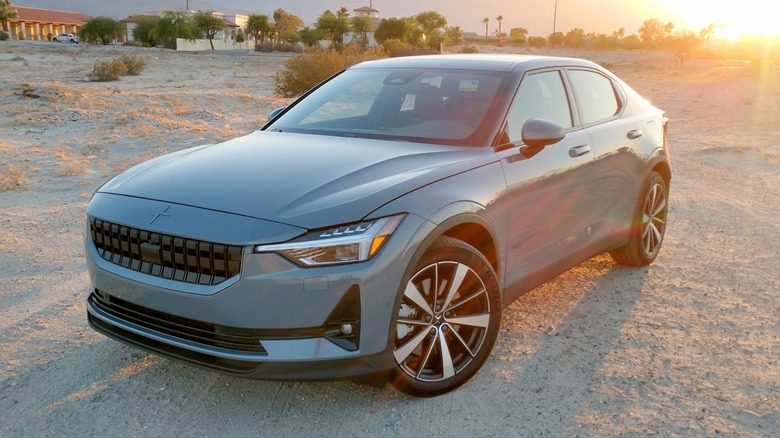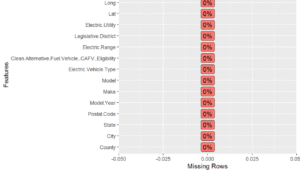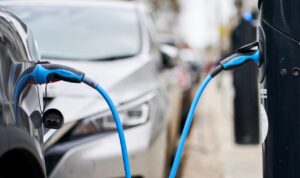What to Ask Sellers When Buying a Used Electric Car is an essential guide for anyone considering the transition to electric mobility. As the market for used electric vehicles continues to grow, knowing what questions to ask can make all the difference in securing a great deal and ensuring the car meets your needs. From understanding the basic differences between electric and traditional vehicles to scrutinizing battery performance, this guide takes you through the crucial aspects you need to consider before making your purchase.
With the right questions in hand, you can navigate through seller disclosures, battery health, and maintenance histories, while also keeping an eye on financial implications and driving ranges. Equip yourself with knowledge to ensure your transition to an eco-friendly vehicle is smooth and satisfying.
Understanding Electric Car Basics: What To Ask Sellers When Buying A Used Electric Car
Electric cars represent a significant shift in the automotive industry, moving away from traditional gasoline-powered vehicles toward cleaner, more sustainable transportation options. This transition is not just about changing the fuel source; it involves understanding a range of new technologies and concepts that define electric vehicles (EVs). Grasping the basics of electric cars can help potential buyers make informed decisions when considering a purchase.Electric cars differ fundamentally from traditional vehicles in terms of their powertrains.
Instead of an internal combustion engine (ICE) that burns fuel, electric cars utilize electric motors powered by batteries. This change leads to several advantages, such as lower operating costs, reduced emissions, and quieter operation. Additionally, electric vehicles often have fewer moving parts than gasoline cars, which can imply less maintenance over time.
Key Electric Vehicle Terminology
Familiarity with electric vehicle terminology is essential for understanding the overall experience and features of EVs. Here are some of the most common terms that every potential buyer should know:
- Battery Electric Vehicle (BEV): A type of electric car that is fully powered by an electric battery and does not use any gasoline.
- Plug-in Hybrid Electric Vehicle (PHEV): A hybrid vehicle that can be charged from an electrical outlet and has both a gasoline engine and an electric motor.
- Range: The distance an electric vehicle can travel on a single charge. This varies widely among different models.
- Charging Infrastructure: The network of charging stations that supply electricity to charge electric vehicles, which can be found in public areas or installed at home.
- Regenerative Braking: A technology that allows electric cars to recover energy typically lost during braking and use it to recharge the battery.
Understanding these terms will not only enhance your knowledge but also help you communicate effectively when discussing electric cars with sellers or dealerships.
Types of Electric Vehicles
The electric vehicle market today offers a variety of options, catering to different needs and preferences. Recognizing the types available can aid buyers in selecting the right model for their lifestyle:
- Battery Electric Vehicles (BEVs): These vehicles run solely on electricity and do not have a gasoline engine. They are known for their zero tailpipe emissions and are often more efficient than other types.
- Plug-in Hybrid Electric Vehicles (PHEVs): These cars combine a traditional internal combustion engine with an electric motor. They can operate on electric power alone for a limited range before switching to gasoline.
- Hybrid Electric Vehicles (HEVs): Unlike PHEVs, HEVs do not require plugging in. They use both a gasoline engine and an electric motor, but the electric battery is charged through regenerative braking and the gasoline engine.
- Fuel Cell Electric Vehicles (FCEVs): These vehicles generate electricity through a chemical reaction between hydrogen and oxygen, emitting only water vapor. They are still relatively limited in availability compared to BEVs and PHEVs.
As the market evolves, various manufacturers continue to innovate, providing consumers with more choices that suit their driving habits and environmental goals. Each type of electric vehicle has its unique set of benefits and limitations, making it essential for buyers to consider their personal needs when exploring options.
Seller Disclosure Information
When contemplating the purchase of a used electric car, understanding the seller’s disclosure is crucial. Sellers are obligated to provide a transparent account of the vehicle’s history, which can significantly impact your buying decision. Here, we break down the essential information sellers should disclose, the critical documents to request, and the importance of obtaining a vehicle inspection report.
Essential Vehicle History Information
It is vital that sellers disclose comprehensive information about the vehicle’s past to ensure a safe and satisfactory purchase. This includes:
- Accident History: Any past accidents or damage should be disclosed, as these can affect the car’s performance and resale value.
- Maintenance Records: Detailed records of routine maintenance and repairs provide insight into how well the vehicle has been taken care of over the years.
- Battery Health: For electric cars, the battery’s current health and any past replacements are crucial, as they directly impact range and performance.
- Ownership History: A clear record of previous owners can indicate how the vehicle was treated and whether it has been passed on due to problems.
- Warranty Status: Information about any remaining manufacturer or extended warranties can offer additional peace of mind and protection against future costs.
Key Documents to Request
Before finalizing the purchase of a used electric car, requesting specific documentation from the seller is essential. This documentation serves as verification of the disclosures made and provides additional assurance regarding the vehicle’s condition:
- Title and Registration: Confirm that the title is clear and the vehicle is properly registered to avoid future legal issues.
- Service History: Obtain a detailed log of all maintenance and repairs, as this can highlight potential issues and confirm the claims made by the seller.
- Vehicle History Report: Tools like Carfax or AutoCheck can provide a comprehensive report that Artikels ownership changes, accidents, and service history.
- Battery Warranty Documentation: If applicable, this will specify the terms and duration of any battery warranty, which is crucial for electric vehicles.
Importance of a Vehicle Inspection Report
A thorough vehicle inspection is a critical step before purchasing a used electric car, providing an objective assessment of its condition.
“An independent inspection can uncover hidden issues that may not be disclosed by the seller.”
Having a mechanic examine the car can reveal problems with the electric system, brakes, tires, and other components that could lead to costly repairs down the line. A report from a certified inspector can offer insights into the following aspects:
- Electrical System: Evaluating the battery and electrical components ensures they function correctly and meet industry standards.
- Mechanical Condition: An inspection assesses the overall health of the vehicle, including brakes, suspension, and drivetrain.
- Safety Features: Checking the operational status of safety features such as airbags and traction control systems is crucial for your safety.
By prioritizing seller disclosures, requesting essential documents, and obtaining a vehicle inspection report, buyers can make informed decisions and secure a reliable used electric car.
Battery Health and Performance
When purchasing a used electric vehicle (EV), understanding the battery’s health and performance is crucial. The battery is one of the most significant components of an electric car, and its condition directly affects the vehicle’s range, efficiency, and overall lifespan. Buyers should be well-informed about how to assess battery health to ensure they make a sound investment.Evaluating battery health involves examining various factors that influence performance and longevity.
A well-maintained battery can provide a reliable driving experience, while a depleted or damaged battery can lead to costly replacements or repairs. Here are some key steps and considerations to help buyers assess battery health.
Requesting Battery Performance Records and Charging History, What to Ask Sellers When Buying a Used Electric Car
Before finalizing the purchase of a used electric car, it’s essential to gather comprehensive battery performance records and charging history from the seller. These documents can provide insights into how the battery has been maintained and its current state.Start by requesting the following records from the seller:
- Battery Capacity Reports: These reports indicate the current capacity of the battery compared to its original specifications. A significant reduction in capacity may suggest potential issues.
- Charging History: Ask for details about how often and to what levels the battery has been charged. Frequent complete discharges or irregular charging patterns can negatively impact battery health.
- Service Records: Documentation of any maintenance or service performed on the battery, including software updates or replacements, should be provided to assess care and attention given to the battery.
Obtaining these records can help buyers make informed decisions based on the battery’s actual performance and history.
Assessing Battery Warranties and Transfer Options
Understanding the warranty related to the battery is vital for any used electric vehicle purchase. Most electric cars come with a manufacturer’s warranty that covers battery performance for a specified period or mileage. Here are some critical aspects to consider regarding battery warranties:
- Warranty Coverage: Review the warranty details to understand what is included. Typically, warranties cover defects in materials and workmanship but may have specific conditions regarding battery degradation.
- Remaining Warranty Period: Check how much of the original warranty is still in effect. Some warranties may extend up to eight years or 100,000 miles, which can save buyers from unexpected repair costs.
- Transferability: Ensure that the battery warranty is transferable to the new owner. This feature can add significant value and peace of mind when purchasing a used electric car.
By carefully examining battery warranties and their terms, buyers can protect themselves from unforeseen expenses and ensure that they are making a wise investment in a used electric vehicle.
Charging Infrastructure and Compatibility
When considering the purchase of a used electric car, understanding the charging infrastructure and its compatibility with the vehicle is essential. This knowledge can help you avoid any surprises regarding charging options and costs, ensuring that your new ride fits seamlessly into your lifestyle.To determine the compatibility of the vehicle with available charging stations, it’s important to check the type of charging port the car uses.
Most electric vehicles (EVs) will have either a Type 1 or Type 2 charging port, commonly known as J1772 in North America and Mennekes in Europe, respectively. Additionally, some manufacturers may have their proprietary connectors. Researching local charging stations through apps like PlugShare or ChargePoint can provide information on where to find compatible chargers.
Types of Chargers and Charging Times
Understanding the types of charging stations available and their respective charging times is crucial for planning your charging needs. There are three main types of chargers:
- Level 1 Charger: This standard household outlet (120V) can take 8 to 20 hours to fully charge a vehicle, depending on the battery size. It’s ideal for overnight charging and daily commutes.
- Level 2 Charger: Operating at 240V, these chargers can recharge an EV in 4 to 8 hours. Installing a Level 2 charger at home can significantly reduce charging time, making it suitable for daily use.
- DC Fast Charger: These are high-powered chargers (up to 800V) that can charge a vehicle to 80% in about 30 minutes. They are typically found at public charging stations along highways for quick top-ups during long trips.
It’s essential to consider the availability of these charging options in your area, especially if you rely on public charging infrastructure.
At-Home Charging Solutions and Costs
Evaluating at-home charging solutions is a critical step before purchasing a used electric car. The type of charger you choose can impact installation costs and your overall convenience. Here’s a breakdown of key considerations regarding at-home charging:
Assessing the installation requirements and costs for at-home charging is vital. Consider the following:
- Electrical System Capacity: Ensure your home’s electrical system can handle the additional load required for Level 2 charging. You may need an electrician to evaluate and upgrade your panel.
- Charger Type: Choose between a Level 1 or Level 2 charger based on your driving habits and how quickly you need your car charged. Level 2 chargers typically cost between $500 and $2,000, including installation.
- Installation Costs: Factor in the cost of hiring a professional electrician for installation, which can range from $300 to $1,500 based on complexity and location.
- Charging Costs: Understand the local electricity rates to estimate how much charging at home will add to your monthly utility bills. On average, charging an EV costs about $0.10 to $0.30 per kWh, depending on your area.
Considering these factors will ensure that your electric vehicle remains an economical and convenient mode of transportation.
Vehicle Maintenance and Service History
When considering the purchase of a used electric car, understanding the vehicle’s maintenance and service history is crucial. This information not only provides insight into how well the car has been cared for but also indicates potential future expenses. A thorough maintenance history can help you assess the likelihood of encountering problems down the line and ensure that the vehicle remains reliable and efficient.
Complete Maintenance History
Request a complete maintenance history for the used electric car. This documentation should include all service visits, routine maintenance, and any repairs performed on the vehicle. Keep in mind that electric vehicles (EVs) may require less frequent maintenance compared to traditional gasoline cars; however, certain aspects are still essential for optimal performance. Here are some key services and their recommended frequencies:
- Tire Rotations: Typically every 5,000 to 10,000 miles, depending on the model and tire wear.
- Brake Inspections: Inspecting brake pads and fluid every 15,000 to 20,000 miles, as EVs have regenerative braking systems that can extend brake life.
- Battery Cooling System Maintenance: Check coolant levels and system function every 30,000 miles to ensure battery efficiency.
- Software Updates: Regular updates may be necessary; inquire about firmware upgrades that can enhance battery management and performance.
Verification of Recalls
It’s essential to verify if the vehicle has undergone any recalls and how those recalls were resolved. Recalls are issued when a manufacturer’s product is found to be defective or poses a safety risk. To confirm the recall status, you can utilize the National Highway Traffic Safety Administration (NHTSA) website, where you can input the vehicle’s VIN. Additionally, request documentation from the seller regarding completed recall repairs.
Be sure to ask if the seller has any records of recall repairs, as this reflects the seller’s transparency and the vehicle’s safety compliance.
Evaluating a used electric car’s maintenance history can significantly influence your purchasing decision. By ensuring all necessary services have been performed and confirming that any recalls were addressed, you are better positioned to make a sound investment in your future vehicle.
Financial Considerations
Purchasing a used electric vehicle (EV) involves more than just the initial cost of the car. Understanding the financial aspects is crucial for making an informed decision and budgeting effectively for ownership. This section covers various costs associated with owning an EV, including insurance specifics and potential incentives that can ease the financial burden.
Potential Costs of Owning a Used Electric Vehicle
Owning a used electric vehicle can come with several costs that buyers should be aware of. These expenses extend beyond the purchase price and can significantly impact your overall ownership experience. Here’s a look at some key financial considerations:
- Purchase Price: The upfront cost of the vehicle itself, which can vary based on make, model, and condition.
- Insurance Premiums: Insurance costs can vary widely for electric vehicles depending on the model and your driving history.
- Charging Costs: While charging can be cheaper than gas, it’s important to consider the cost of home charging equipment installation and electricity rates in your area.
- Maintenance and Repairs: Although EVs generally require less maintenance than traditional vehicles, certain components like the battery may incur significant replacement costs if needed.
- Registration Fees: Some states have additional fees for electric vehicles, which can add to the overall cost of ownership.
- Depreciation: Like all cars, EVs depreciate over time, and understanding this can help with future resale value expectations.
Insurance Requirements and Costs for Electric Cars
Insurance for electric vehicles can differ from traditional vehicles due to specific features and overall value. It’s essential to understand these differences to budget appropriately.
- Electric vehicles typically require comprehensive coverage to protect against damage to the battery and advanced technology.
- Insurance rates may be higher for EVs, reflecting their often higher repair costs compared to gas-powered vehicles.
- Factors like the make and model, your driving record, and the level of coverage you choose will influence insurance rates. For example, a Tesla might have higher premiums due to its advanced technology and repair costs, while a used Nissan Leaf may be more affordable to insure.
“Insurance for electric cars can be influenced by their repair costs and the technology they employ.”
Incentives, Rebates, and Tax Credits for Electric Vehicle Purchases
Many states and the federal government offer various incentives that can reduce the financial impact of purchasing an electric vehicle. Understanding these can significantly benefit your budget.
- Federal Tax Credit: Buyers of new electric vehicles can often receive a federal tax credit that can range from $2,500 to $7,500 depending on the battery capacity.
- State Incentives: Many states provide additional rebates or tax credits for electric vehicle purchases. For instance, California offers rebates as part of its Clean Vehicle Rebate Project (CVRP).
- Utility Incentives: Some utility companies offer rebates for the installation of home charging stations or discounts on electricity rates for EV owners.
- Local Incentives: Check for local government incentives which may include tax exemptions on registration fees or free charging station access.
By considering these financial aspects, you can make a more informed decision when buying a used electric vehicle and ensure that your investment aligns with your budget and financial goals.
Driving Range and Usage
When considering a used electric car, understanding its driving range is crucial for evaluating its suitability for your needs. The driving range is determined by several factors, including the vehicle’s battery size, age, and the driving habits of the owner. Assessing these elements will help you gauge whether the electric vehicle can comfortably support your daily commutes and weekend adventures.The driving range of an electric vehicle (EV) is primarily influenced by the battery capacity, often measured in kilowatt-hours (kWh).
Generally, a larger battery size translates to a longer driving range. For instance, a vehicle with a 60 kWh battery might offer a range of around 200 miles, while one with an 80 kWh battery could extend that range to approximately 300 miles. However, battery age also plays a significant role; as batteries age, their capacity and efficiency can diminish.
A five-year-old EV may not deliver the same range as a newer model, even if the battery is the same size.
Impact of Driving Habits on Range
Driving habits significantly influence how far an electric vehicle can go on a single charge. Rapid acceleration, aggressive driving, and frequent hard braking can deplete the battery faster than smooth, steady driving. To illustrate this, consider the difference in range between city driving and highway driving. City driving often involves stop-and-go traffic, which can be less efficient for EVs compared to the steady speed of highway driving.Several factors can affect the real-world performance of electric cars, including:
- Speed: Higher speeds tend to increase air resistance, which can reduce range.
- Climate Control: Using heating or air conditioning can draw additional power from the battery, decreasing the range.
- Terrain: Hilly or mountainous driving can use more energy compared to flat terrain.
- Load: Carrying heavy loads or multiple passengers can also impact range.
- Tire Pressure: Under-inflated tires create more rolling resistance, which can lead to a decrease in overall efficiency.
Understanding these factors can help potential buyers evaluate the driving range and usability of a used electric vehicle. By considering both battery specifications and driving habits, you can make a more informed decision on the right electric car for your lifestyle.
Test Drive Experience

Taking a used electric car for a test drive is a crucial step in the buying process. It’s your opportunity to evaluate the car’s performance, comfort, and suitability for your daily needs. The test drive can provide insights into how the vehicle handles, its features, and any potential issues that may not be apparent from a simple inspection. During your test drive, there are specific aspects you should closely observe to ensure that the electric vehicle meets your expectations.
By carefully assessing the vehicle’s performance metrics and testing it in various driving conditions, you can make a more informed decision about your purchase.
Checklist of Aspects to Observe
Before heading out for the test drive, it’s essential to have a checklist of items to evaluate. This will help you stay focused on the important features and performance aspects that matter most to you.
- Acceleration and Braking: Note how quickly the car accelerates from a stop and how responsive the brakes feel. A smooth transition is often a sign of good performance.
- Steering and Handling: Observe how the car steers. It should feel responsive and stable during turns. Pay attention to any unusual vibrations or noises.
- Noise Levels: Electric cars are generally quieter than their gasoline counterparts. Listen for any disruptive sounds from the drivetrain or cabin.
- Comfort: Assess the seating comfort, visibility, and overall ergonomics of the driving position.
- Dashboard and Controls: Familiarize yourself with the layout of the controls, displays, and infotainment system while driving.
- Battery Level and Range Display: Check how the battery level indicator reflects the current range and whether it aligns with the manufacturer’s claims.
Important Performance Metrics to Note
During the test drive, certain performance metrics are crucial to evaluate the electric vehicle’s efficiency and overall condition. Keeping track of these metrics will ensure that you have a comprehensive understanding of the vehicle’s capabilities.
- Range Estimation: Monitor the estimated driving range. It should reflect a realistic figure based on current battery levels and driving conditions.
- Regenerative Braking Effectiveness: Test how well the regenerative braking system recovers energy when slowing down. A strong regenerative system can enhance efficiency and range.
- Power Usage: Observe the energy consumption rate displayed on the dashboard. This can give insight into how efficiently the vehicle operates under real driving conditions.
- Charging Rate: If possible, check how quickly the car can charge during your test drive with a charging station. This information is vital for long trips.
Significance of Testing Various Driving Conditions
When evaluating a used electric car, it’s important to test it in different driving conditions. This will provide a clearer picture of its adaptability and performance in real-world scenarios.
- City Driving: Maneuver through stop-and-go traffic to assess acceleration, braking, and battery management in urban settings.
- Highway Driving: Test at higher speeds to evaluate stability, noise levels, and overall comfort during longer trips.
- Hills and Inclines: Drive on varying elevations to observe how the vehicle performs under strain, impacting battery usage and power delivery.
- Weather Conditions: If possible, test in different weather conditions such as rain or wind, as these can affect handling and performance.






